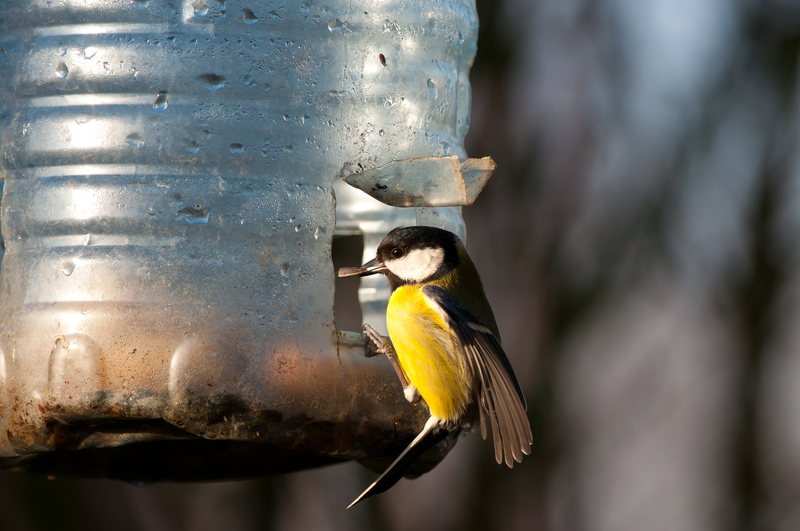Green Waste Reduction: Top 10 Approaches Unveiled
As the global population continues to rise, the accumulation of green waste--referring to organic waste from plants and gardens--poses a significant environmental concern. Addressing this challenge involves understanding and applying various strategies aimed at minimizing waste. This article unveils the top 10 approaches for reducing green waste, helping individuals and communities contribute to a more sustainable future.
1. Composting
Composting remains one of the most effective methods for reducing green waste. By converting organic waste into nutrient-rich soil, composting not only reduces landfill burden but also enriches garden beds, promoting sustainable gardening.
- Set up a compost bin or pile in your backyard.
- Include a balanced mix of green and brown materials.
- Turn the pile regularly to speed up decomposition.

2. Grasscycling
Grasscycling involves leaving grass clippings on the lawn after mowing. This technique reduces the need for disposal and naturally fertilizes the lawn by returning nutrients back into the soil.
- Use a mulching mower to finely chop clippings.
- Cut the grass frequently to avoid buildup.
- Maintain healthy soil to enhance absorption.
3. Vermicomposting
Vermicomposting uses worms to break down organic waste into valuable compost. This method is ideal for those with limited outdoor space, providing an efficient way to reduce waste and create high-quality compost.
- Choose a suitable bin and location, keeping it indoors or in shaded outdoor areas.
- Add appropriate bedding material such as shredded newspaper.
- Introduce worms and feed them green waste regularly.
4. Mulching
Mulching helps reduce garden waste by using organic materials such as bark, leaves, or compost to cover the soil surface. This practice conserves moisture, suppresses weeds, and improves soil quality, minimizing the need for disposal.
- Lay down at least 2 to 3 inches of mulch.
- Avoid piling mulch against plant stems or trunks.
- Renew mulch annually to maintain its effectiveness.
5. Reusing Garden Waste
Repurposing garden waste into new projects is an innovative approach to cutting down waste. From creating plant markers with twigs to crafting decorative pieces with dried plant materials, the possibilities are nearly endless.
- Use small branches as plant supports or garden sculptures.
- Create wreaths or garlands with pruned vines and flowers.
- Repurpose leaves into leaf mold for soil enrichment.
6. Community Green Waste Programs
Community green waste programs offer collective solutions to manage waste effectively. By joining local initiatives, individuals can benefit from shared resources and information tailored to reducing organic waste.
- Participate in community composting projects.
- Engage with local councils to promote waste reduction practices.
- Attend workshops on sustainable gardening techniques.
7. Native Plant Cultivation
Growing native plants is another strategic measure that contributes to green waste minimization. Native plants better adapt to local climates and soils, requiring less maintenance and producing less waste.
- Select plants that are naturally found in your region.
- Reduce the need for fertilizers and extensive watering.
- Maintain a balanced ecosystem by fostering biodiversity.
8. Smart Landscaping Designs
Implementing smart landscaping designs can transform gardens into low-waste spaces. By considering factors like plant placement and garden layout, you can significantly reduce waste and enhance efficiency.
- Incorporate xeriscaping principles to minimize water usage.
- Choose perennials over annuals to decrease planting turnover.
- Plan for plant growth and spacing to limit pruning and thinning.

9. Sustainable Mulching Techniques
Beyond conventional mulching, sustainable mulching techniques focus on incorporating seasonal waste products and locally sourced materials for an environmentally friendly approach to waste reduction.
- Utilize fallen leaves as seasonal mulch.
- Incorporate straw bales for garden pathways.
- Apply chipped tree bark or branches from tree pruning.
10. Educating and Raising Awareness
Awareness and education play a crucial role in reducing green waste. Informing communities about the benefits of sustainable practices encourages more participation and fosters a culture committed to reducing waste.
- Host informative workshops and events.
- Distribute educational materials highlighting green waste reduction.
- Encourage schools to integrate waste reduction into their curricula.
By adopting these approaches, individuals and communities can substantially reduce green waste, promoting a healthier environment and paving the way for sustainable living. Implementing even a few of these strategies can make a significant impact, proving that efforts in reducing organic waste are both attainable and valuable.